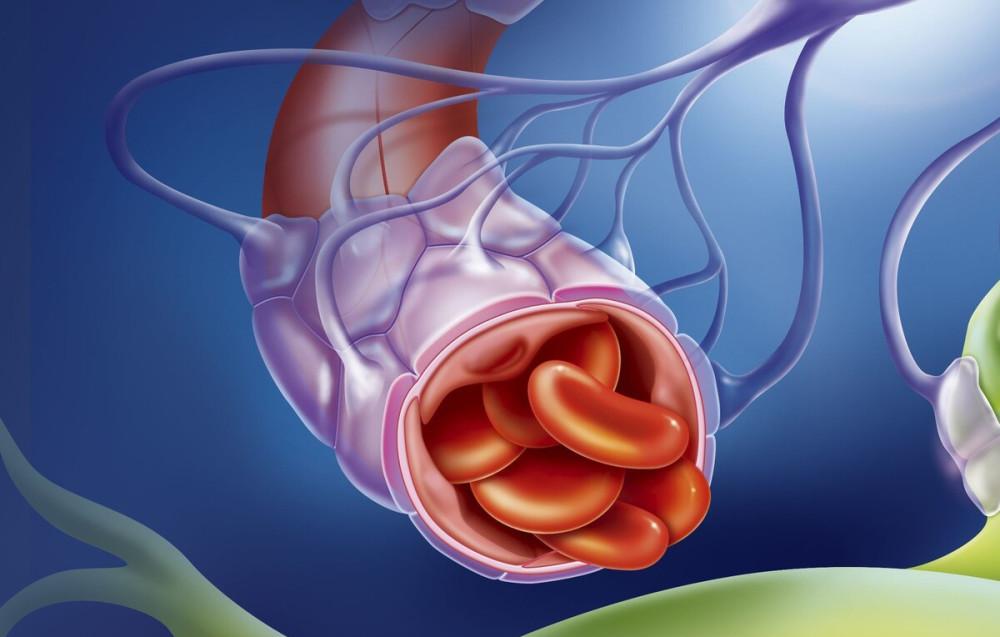We know that surgery, chemotherapy, and radiation therapy are known as the "troika" of traditional cancer treatments. With the development of molecular biology, the field of anti-cancer has gradually developed to the cellular and genetic level, targeted therapy, immunotherapy, and anti-angiogenesis therapy, which is known as the "new troika" of anti-cancer treatment.
One of the very important reasons why malignant tumors can grow wildly is that there is a rich blood supply, and cancer cells have the ability to grow new blood vessels on their own and grab nutrients from the body for their own use. In layman's terms, cancer cells are like "vampires", making themselves stronger. To this end, scientists have thought of the treatment concept of cutting off tumor blood vessels and making cancer cells really "starve to death". Interventional hepatic artery vascular embolism (TACE), which we use in the field of liver cancer, is a way to block the vascular supply of cancer cells. Today take stock of the anti-tumor neovascularization drugs that are already in clinical use.

1. Bevacizumab
Bevacizumab inhibits the angiogenesis of new tumor angiogenesis by binding to the vascular endothelial growth factor (VEGF) of cancer cells, thereby inhibiting the angiogenesis of new tumors and playing a sustained anti-tumor effect. In 2004, bevacizumab was first approved in the United States for advanced colorectal cancer. In 2010, it entered the Chinese market, and in 2015, bevacizumab was approved as an indication for lung cancer in China for the first-line treatment of advanced, metastatic or recurrent non-squamous non-small cell lung cancer. Bevacizumab is used simultaneously with a variety of chemotherapy and other anti-tumor therapies, which has a synergistic effect and relatively few side effects.
2. Remolosumab
Ramosumab is a very representative anti-angiogenic drug, targeting VEGFR-2, which also inhibits tumor angiogenesis by inhibiting tumor vascular endothelial growth factor. Its indications cover a wide range of common cancers such as lung cancer, stomach cancer, colorectal cancer, esophageal cancer, liver cancer, etc., and are an important treatment choice for many patients. First approved in 2014, the first indication was adenocarcinoma at the junction of stomach and gastroesophageals. The approval of this indication also makes ramosumab the first fda-approved anti-angiogenic drug.
It is worth mentioning that the combination of ramovizumab with small molecule targeted drugs, such as erlotinib, has been approved for the first-line treatment of metastatic non-small cell lung cancer with EGFR exon 19 deletion or exon 21 mutation.
3. Recombinant human vascular endothelial inhibitin
Recombinant human vascular endothelial suppressor injection (Endo) is an anti-angiogenesis drug originally researched in China. The drug is based on the "starvation oncology theory" of Professor Judah Folkman of Harvard University in the United States, and it took seven years to develop. The purpose of inhibiting tumor growth is achieved by inhibiting the migration of vascular endothelial cells and improving the activity of vascular endothelial inhibitors, as well as inhibiting the activity of vascular growth factors. Compared with other anti-angiogenic drugs, Endeux medication is relatively troublesome, requiring continuous use for 7 or 14 days, and the control effect of malignant pectoral ascites is better.
4. Anlotinib, Apatinib
Anlotinib and apatinib are both small molecule anti-angiogenesis targeted drugs researched in china, and oral medication is more convenient. Anlotinib and apatinib have similar targets, including VEGFR, PDGFR, FGFR, c-Kit, etc., which have the dual effects of anti-angiogenesis and inhibition of tumor growth. In the guidelines for the treatment of lung cancer, anlotinib is recommended for the treatment of non-small cell lung cancer and small cell lung cancer in the third line and above. Apatinib indications are third-line and above drugs for gastric cancer. On the third line of esophageal cancer, apatinib and anlotinib are recommended in the guidelines.
From a large number of clinical trials and a large number of clinical experience, the use of anti-angiogenic drugs is relatively poor, but in combination with other treatments, such as combined small molecule targeted drugs, combined immunotherapy drugs, and combined chemotherapy, it can play a role of 1+1>2. In addition to the above-mentioned anti-tumor vascular drugs commonly used in clinical practice, reaction stop and nidanibu also have a certain anti-angiogenic effect.